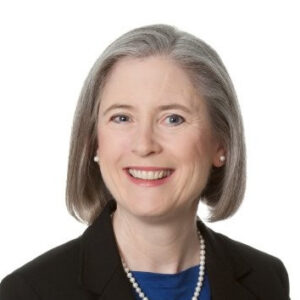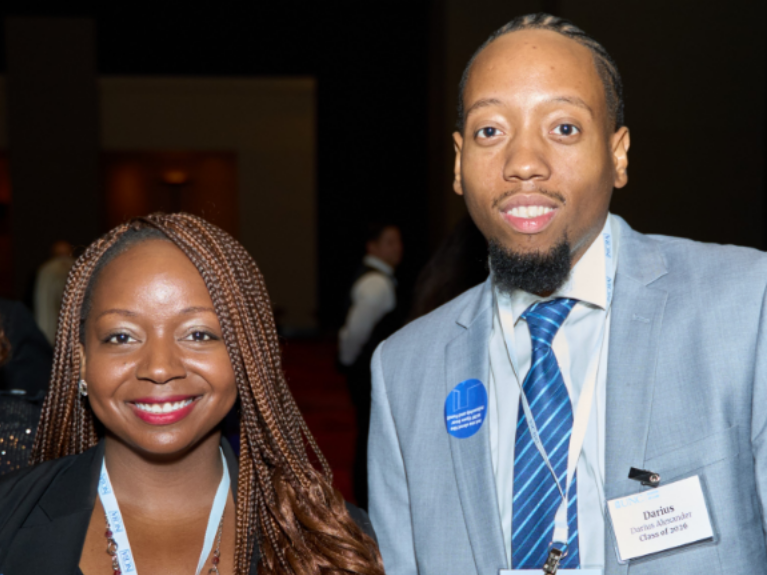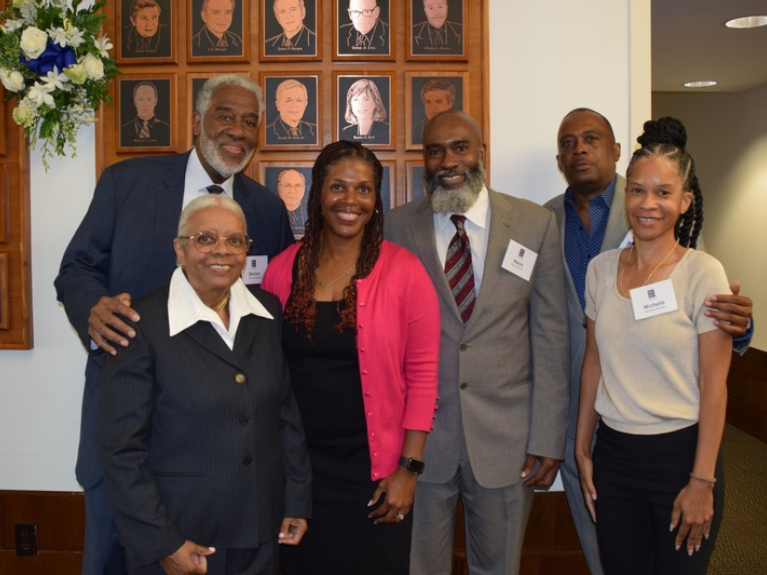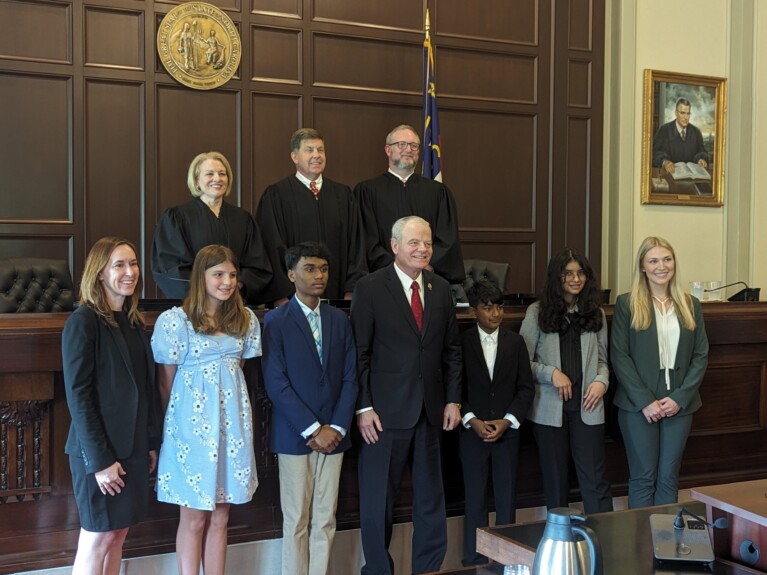Pro Bono Spotlight: Patent Pro Bono Program – Calling All IP Attorney Volunteers

With degrees in chemical engineering, Jennifer Knight didn’t set out to be an attorney, but when she decided to go to law school after working for a large corporation, she knew she would be a patent attorney. Now of counsel at Clements Bernard Walker, Jennifer feels strongly about the need to give back. “Securing my degree came with an obligation to serve,” states Jennifer. “I am a lifetime Girl Scout with a desire to make the world a better place,” she adds.
Since becoming an attorney, Jennifer has participated in a variety of volunteer programs, but she is particularly enthused about the Patent Pro Bono Program. “Until the Bar Foundation partnered with Georgia PATENTS in 2020 to extend this program, it wasn’t easy for IP attorneys to engage in pro bono work that aligns with our expertise,” said Jennifer.
Why Georgia PATENTS?
Georgia PATENTS stands for Pro Bono Assistance and Training for Entrepreneurs and New Talented Solo Inventors, and it is a part of Georgia Lawyers for the Arts, (GLA) which has a forty-five plus year tradition of providing free legal assistance to artists and art organizations who would otherwise not be able to afford legal representation. “The addition of GA Patents to GLA was a logical extension of the organization’s mission,” said Kelly Bray, Director of Legal Services at GLA. “Small businesses are the lifeblood of this country,” continues Kelly, “and we want to increase the chances of qualified low wealth applicants seeing their inventions come to fruition.”
A Winning Partnership
The partnership between GLA and the NC Bar Foundation has enabled both organizations to extend their reach. The USPTO’s Patent Pro Bono Program — as offered through Georgia PATENTS and NCBF– is a win for both NC attorneys looking to volunteer, and for low wealth, underserved inventors, small businesses and non-profits looking to protect their intellectual property.
“We are so thankful for the relationship with the NC Bar Foundation,” said Kelly. “The collaboration is facilitating local connections for NC lawyers and inventors, and beyond that, it’s creating opportunities for people to take their lives in a new direction.”
Good News for Attorney Volunteers
“By the time we match an attorney with a client, a good deal of work has been done up front through our client application process,” explains Kelly. “We provide support and education for new inventors, while ensuring searches have been conducted and all qualifying criteria have been met. So when the attorney assignment is made, the focus can be directly on the legal work at hand.”
“The work is task-oriented and clearly defined on the front end,” states Jennifer, who has been involved in the Patent Pro Bono Program from the outset. As a volunteer, she appreciates having this clarity before an assignment begins and she feels it helps her manage her volunteer work and meet client expectations.
“Admittedly, securing a patent is just one part of the “entrepreneurial ecosystem”,” comments Jennifer, “but IP attorneys shouldn’t be reluctant to take on work due to the client’s additional entrepreneurial needs.” NC has a rich entrepreneurial community with several resources for our clients. For example, there are compiled lists of NC business resources which enable volunteers to readily direct their clients. “You don’t need to know everything,” assures Jennifer. “Sometimes just being able to point someone in the right direction is a huge help to a client, and a gratifying part of the engagement,” she adds.
Leveling the Patenting Playing Field
According to Kelly, applicants in the Patent Pro Bono Program come from diverse backgrounds and circumstances that reflect the demographics of their geographies. They include mothers and students, men and women, young professionals and older people, with ideas born of their unique experiences and circumstances. This diversity contrasts sharply with the make-up of the population that has traditionally been successful in navigating the patenting process. To illustrate the disparity, consider the following:
Individuals born into the top 1% of family incomes are 10 times more likely to patent intellectual property then those born in the entire bottom half. Women account for only 13% of inventors, while Black and Hispanic college graduates secure patents at roughly 50% of their white counterparts.
Why Volunteer?
Jennifer describes how rewarding it has been to work with inventors and to see them light up as they engage in the patent application process. She adds that it is particularly gratifying to know she is working toward ameliorating the lack of gender, ethnic and economic diversity in the ranks of those securing patents. While the number of attorneys involved in the Patent Pro Bono Program is growing, there is always a need for more volunteers. According to Kelly, even with an established infrastructure designed to streamline the application and matching process, she can sometimes tap on as many as twenty attorneys before she finds someone who is free to take on a volunteer assignment.
A Dynamic Attorney/Client Match
The note accompanying the box of chocolate covered strawberries said “thank you for your awesomeness.” Jennifer smiles, recalling the gift and the sender, Dr. Ophelia D. Adams, Wilmington chiropractor, medical analyst, first time patent applicant and creative thinker. Jennifer describes her client as a real “go-getter.”
“By the time we were matched through the Patent Pro Bono Program, Ophelia had done a good deal of research and had already secured a provisional patent. When I engaged with her we were able to work efficiently over the course of the next two months to file her application,” explains Jennifer. “The work took about twenty hours of my time and is typical of the type of pro bono tasks I take on through the Program.”
Speaking of her invention, Ophelia says it was one born of necessity. As a pre-diabetic she found herself frequently using public restrooms and bemoaning their lack of cleanliness. Her response – a biodegradable toilet bowl cover designed like a mask with draw strings that fit the entrapment snugly on the bowl to prevent splashes and contamination.
Once her idea was conceived, Ophelia was determined to protect it. She met with one attorney but realized she wouldn’t be able to afford his services, and was thankful she found her way to GA Patents and eventually to Jennifer.
“When we started working together I was simply amazed with Jennifer’s focus and her ability to focus me,” said Ophelia. “The process was so much quicker than I thought it would be and Jennifer was able to pull things out of me that I didn’t even know were there. I am so grateful that we were paired.”


